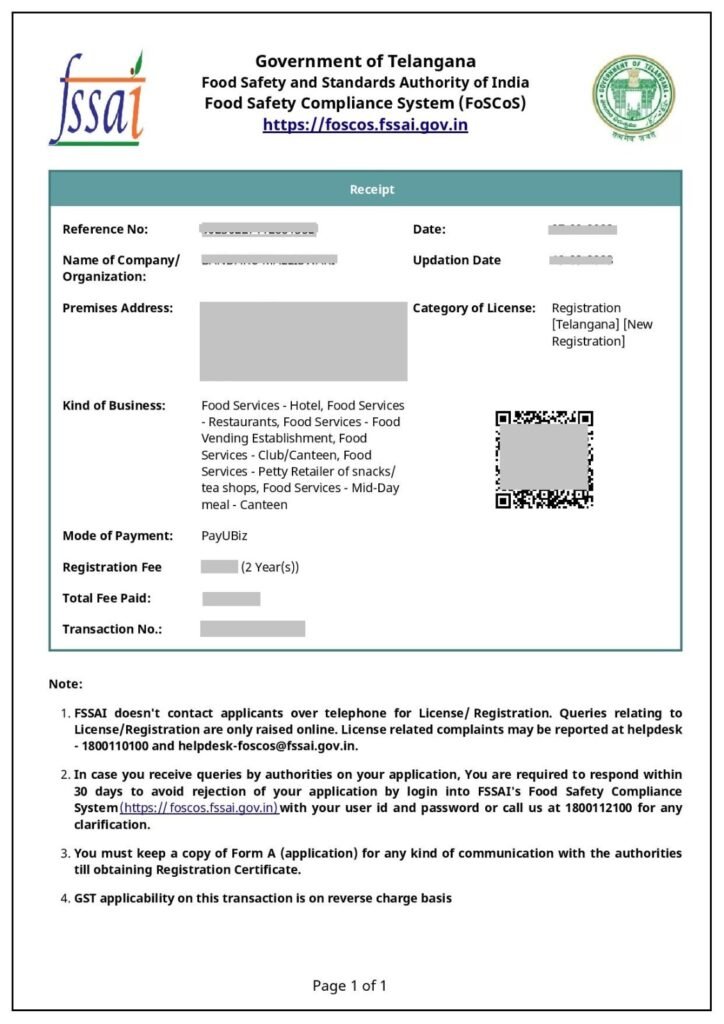FSSAI
The Food Safety and Standards Authority of India (FSSAI) oversees food regulations. Enacted to elevate food hygiene and quality, the Food Safety & Standards Act, 2006, has profoundly impacted the food business. This legislation, supported by the government’s food licensing and registration system, mandates stringent quality inspections for food products, thereby mitigating adulteration and substandard output, and enhancing manufacturer accountability through the issuance of food service licenses.

Objectives
Any food business in India must first obtain an FSSAI license or registration. This mandatory 14-digit number, issued by the Food Safety and Standards Authority of India (FSSAI) under the Ministry of Family Health & Welfare, Government of India, must be printed on all food packaging.
Essentially, all entities involved in the manufacturing, processing, packaging, distribution, or transportation of food products are legally required to be registered with or licensed by the FSSAI before they can begin or continue operations. To acquire this approval, an application must be submitted to the FSSAI in the prescribed format, along with supporting documents.
License Categories:
FSSAI Basic Registration: This is for small businesses and startups with an annual turnover of less than ₹12 lakhs. As your business grows, you’ll need to upgrade this registration.
State FSSAI License: This license is for mid-sized businesses with an annual turnover ranging between ₹12 lakhs and ₹20 crores.
Central FSSAI License: This is typically required for large businesses with an annual turnover exceeding ₹20 crores. It’s also mandatory if you’re involved in importing or exporting food items or are working with government entities.
Location Specific:
A FSSAI License is valid for one or two years and can be renewed before its expiry date, depending on the company’s needs.
Hawkers and Cottage Industries:
Operators of small food businesses, such as cottage businesses, hawkers, itinerant vendors, and temporary stallholders, are excluded from FSSAI registration or licensing.
Documents Required For Food License:
- Declaration copy
- Property paper copy;
- Authorization letter (If owned property)
- Copy of the lease agreement (if the property is rented);
- Plan or certificate for the food safety management system;
- Electricity/water bill (if the location is a business);
- Copy of the owner’s Aadhaar card or director’s voter identification card;
- Form IX: Nomination of Persons by a Company with the Board Resolution.
Further manufacturer documents:
- The following items should be listed:
- the processing unit’s blueprint or layout design;
- the equipment and machinery;
- the food categories that should be manufactured;
- and the water’s pesticide residue report.
- Report on pesticide residues in water
How to obtain an FSSAI license:
The FSSAI application can be submitted to the government directly. The procedure is drawn out and usually takes 60 days.
Step 1: Complete the FSSAI food licence registration form A online and pay for the application at the FBO in your area.
Step 2: You must submit Form B to the government after the payment confirmation appears in your FSSAI account. You must submit numerous declarations and resolutions together with your application. For instance, a board decision or owner self-declaration.
Step 3: You must then follow up with the government agency to inquire about the status of your application. If you don’t react within 15 days, the government may send your application back for revisions.
